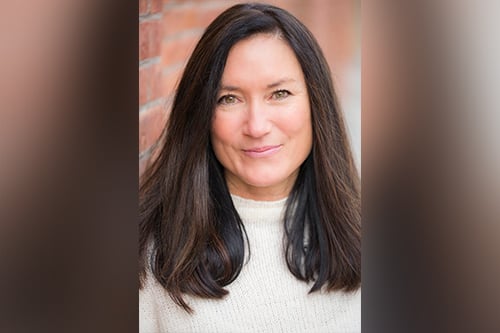She is aiming to make real, quantifiable, change in her role

Miki Adams (pictured) has a mission that goes far beyond increasing loan volumes. The newly appointed president of CBC Mortgage Agency (CBCMA) is driven to further her organization’s goal of improving home ownership for lower- and middle-income Americans, especially those in minority communities. It’s a mission that, for Adams, is deeply personal.
The daughter of an American father and a Japanese mother, Adams grew up hearing the story of when her parents tried to buy their first home in Southern California. The neighborhood, rather than welcoming them, sent a petition around to stop the sale of the home to an interracial couple. They didn’t want Adams’ Japanese mother living near them.
Thankfully, that petition went nowhere but Adams knows all too well that for many minorities and immigrants in the United States, what should be their American dream of homeownership is often tainted by discrimination, undue difficulty, or outright racism.
“When you come from that perspective there’s a deeper appreciation for what it means to own a home and what you need to do to be able to do that,” Adams said. “The mission of CBCMA to help low- to moderate-income borrowers to achieve homeownership was really personal for me.”
Now as president of CBCMA, Adams is focused on redressing some of those injustices through concrete steps to improve access to housing and lending for systemically disadvantaged groups. Those efforts include a push to better educate and communicate with borrowers on a longer-term basis.
Read more: Do lending institutions have a discrimination problem?
In her previous role as executive vice president of CBCMA, Adams spearheaded a number of initiatives and efforts, but she is most proud of CBCMA’s borrower outreach program. That program, which followed up with CBCMA borrowers for 18 months after their loans closed, was “eye opening” for Adams. She was able to hear first-hand some of the issues these borrowers faced and address those they had about coming to their lender for support. Many of these borrowers, Adams explained, were afraid that if they told their lender or servicer that they were struggling they would lose their home. This program helped address those concerns.
While Adams is reaching out and educating borrowers, she also wants to help educate the wider industry about some of the systemic issues these borrowers face. In the wake of the Black Lives Matter movement’s surging visibility through 2020, she said that much of the US mortgage and housing industry has started talking about longstanding issues that have kept minorities from accessing some of the opportunities white Americans enjoy. In 2021, Adams wants to help move that conversation further and deepen mortgage professionals’ knowledge of some of the underlying forces shaping access to the American dream.
Read more: NYC Black and Hispanic people pay more for home loans
“I think the real challenge is equitable access to credit,” Adams said. “We have borrowers that may not have the same credit resources, and need to have that opportunity so that they can ultimately attain homeownership.”
In a mortgage industry that’s shaped by quantifiable wins and measurements of loan volumes, Adams wants to go into 2021 better measuring the impact CBCMA makes. While she believes in the intangibles of her work, she is keen to see her organization setting and meeting targets for real change.
As for mortgage pros working in less mission-driven environments, Adams says they should look to the wider community of borrowers as a chance both to do good and to create future opportunities for themselves.
“They should be thinking along the same lines as us. The more they can educate borrowers and the more communities of color that they reach, the more their sales numbers will grow,” Adams said. “Ultimately, those same borrowers are going to become their new business. We’re building wealth for these people when we create the opportunity of homeownership. We’re getting them to start the process of wealth creation which extends to the next generation and will just continue to fuel the market for homeownership.”



